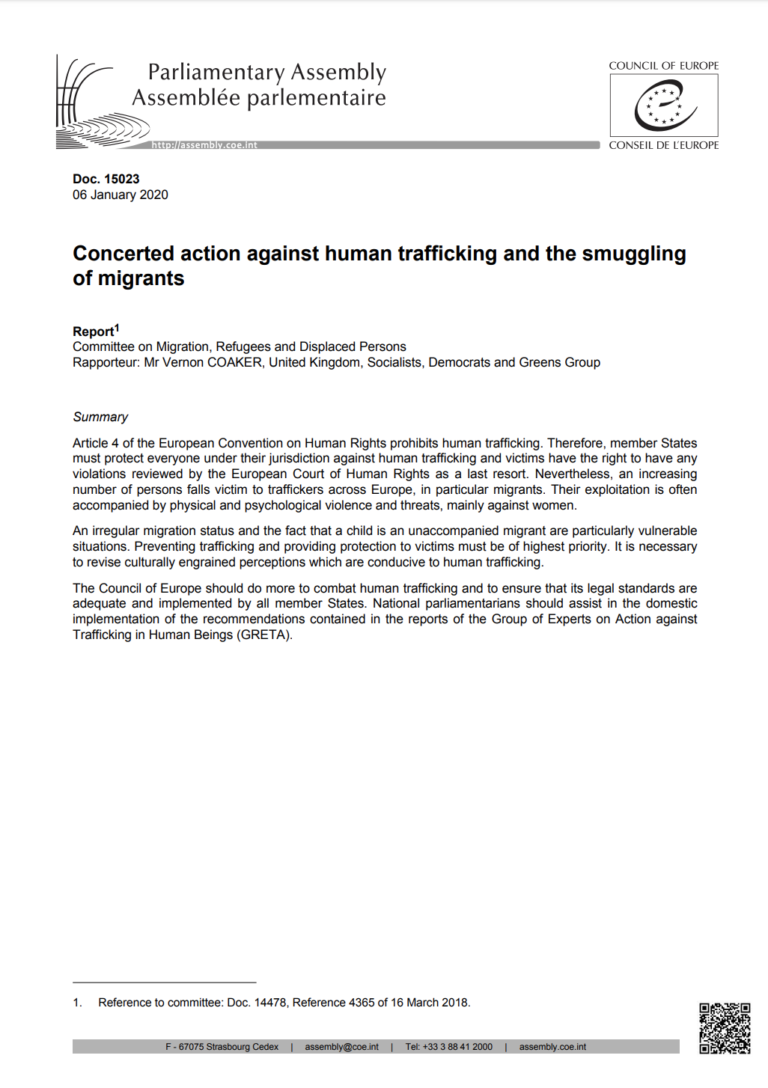Elaborated by the Committee on Migration, Refugees and Displaced Persons Rapporteur: Mr Vernon COAKER, United Kingdom, Socialists, Democrats and Greens Group
Article 4 of the European Convention on Human Rights prohibits human trafficking. Therefore, member States must protect everyone under their jurisdiction against human trafficking and victims have the right to have any violations reviewed by the European Court of Human Rights as a last resort. Nevertheless, an increasing number of persons falls victim to traffickers across Europe, in particular migrants. Their exploitation is often accompanied by physical and psychological violence and threats, mainly against women.
An irregular migration status and the fact that a child is an unaccompanied migrant are particularly vulnerable situations. Preventing trafficking and providing protection to victims must be of highest priority. It is necessary to revise culturally engrained perceptions which are conducive to human trafficking.
The Council of Europe should do more to combat human trafficking and to ensure that its legal standards are adequate and implemented by all member States. National parliamentarians should assist in the domestic implementation of the recommendations contained in the reports of the Group of Experts on Action against Trafficking in Human Beings (GRETA).

